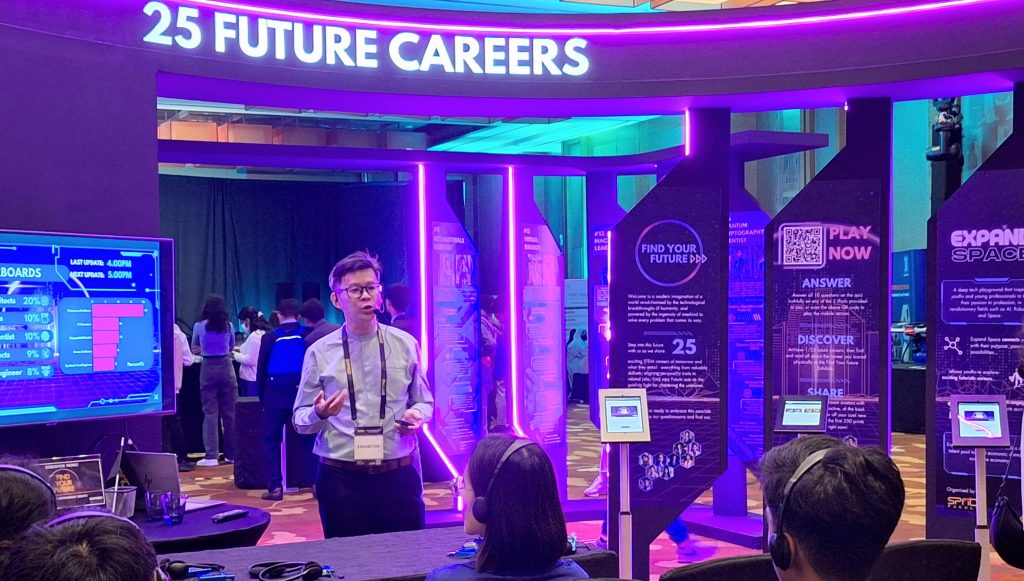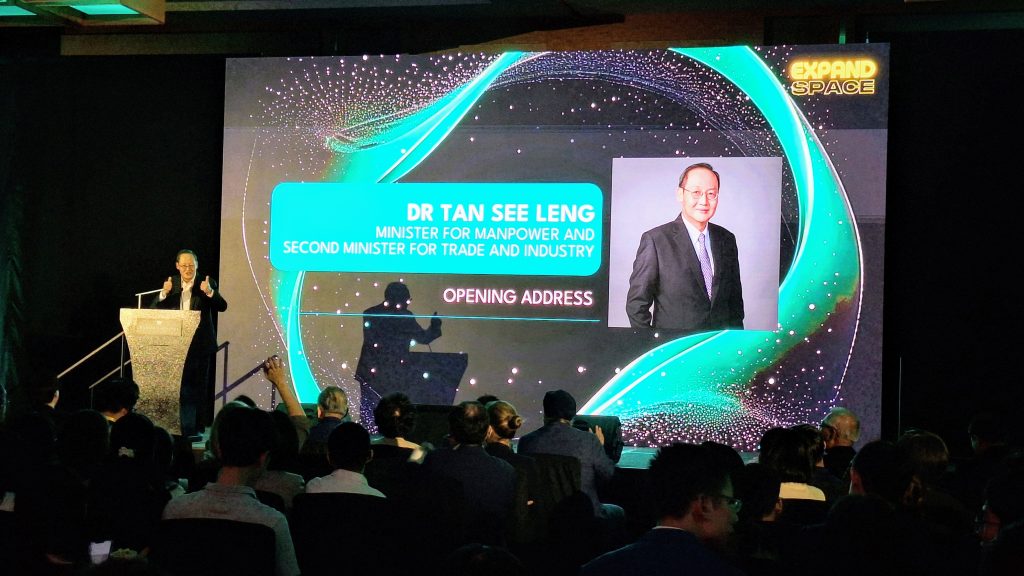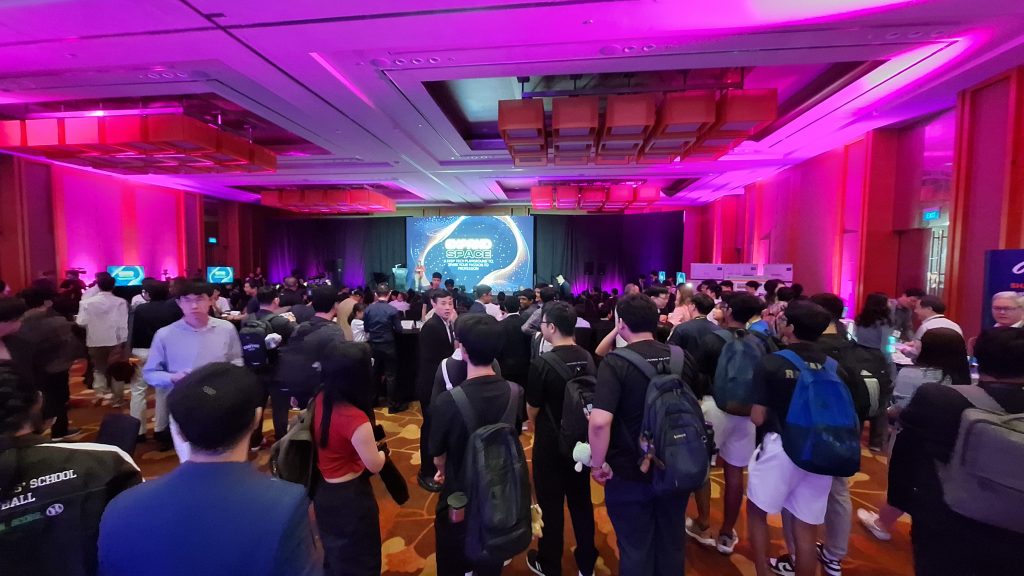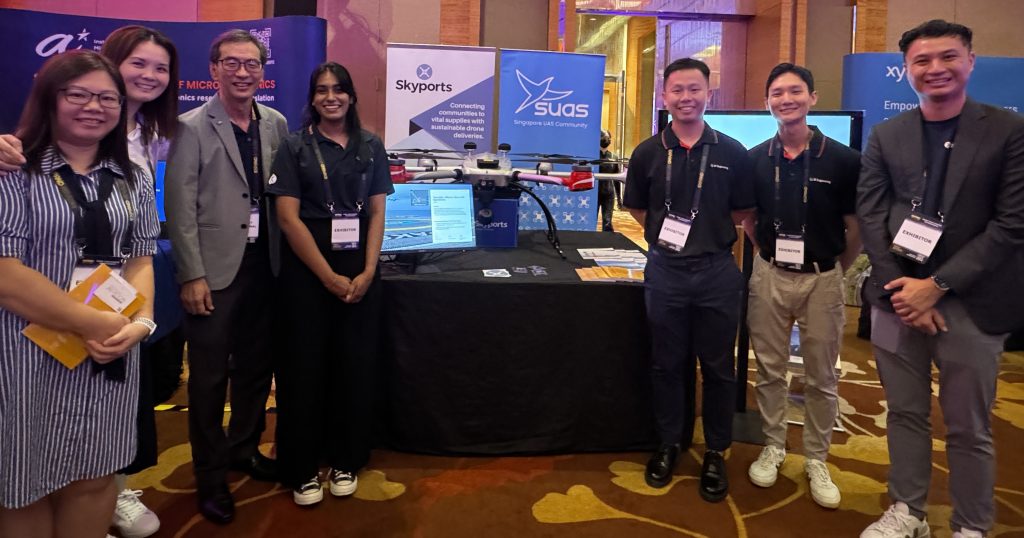The inaugural Expand Space event, organised by Space Faculty, took place on Friday, 22 November 2024, at Marina Bay Sands. An intimate but impactful conference and exhibition, the event served as a platform for youths and young professionals to explore exciting possibilities and ignite their passion for Deep Tech.
Featuring interactive zones in Artificial Intelligence (AI), Virtual Reality (VR), Space, and Robotics, the event offered learning experiences to inspire participants to delve deeper into emerging technologies. A highlight was the 25 Future Careers Showcase, which introduced attendees to career opportunities in space and major Deep Tech domains such as robotics and AI.
The Singapore UAS Community by AAIS added to the excitement with its participation in the table top exhibition and the Future Careers Showcase. The booth highlighted cutting-edge technologies in Unmanned Aircraft Systems (UAS), offering participants valuable insights into this developing sector. A heartfelt thank you goes to Skyports, ST Engineering, and Heron AirBridge for their strong support and significant contributions to these efforts.


The event drew over 700 participants, including youths, parents, educators, industry partners, and government agencies. A highlight was the keynote by 2nd Minister for Trade and Industry Dr Tan See Leng, who outlined the immense potential of the global space economy. He noted its projected growth to $1.8 trillion by 2035, nearly triple its current value, and underscored Singapore’s commitment to seize opportunities in this sector. Efforts include the expansion of the mandate of the Office for Space Technology and Industry (OSTIn) as Singapore’s national space office, and a continued focus on STEM education to cultivate a robust pipeline of talent for roles in the space and technology industries.


The event also saw the launch of the STEM Foundation, a non-profit initiative by Space Faculty. Dedicated to empowering underprivileged youths, the foundation will support some 100 children in STEM programmes such as coding, life sciences, robotics, and space technology, complementing government efforts to foster a more inclusive and tech-ready workforce.


Recent Comments